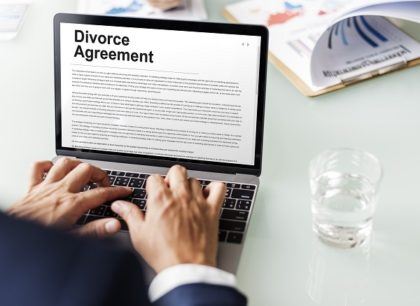 Divorce is a stressful process, especially when you have to take the case all the way through to a final hearing. A final hearing can take a long time and can be expensive and emotionally draining. Luckily more and more cases, including divorces, are settling before ever reaching a final hearing. Divorcing couples are seeing the advantages of crafting tailor-made solutions for their families instead of going to trial and having a judge make those decisions on their behalf. Collaborative divorce is one way in which parties are arriving at mutually beneficial settlement agreements.
Divorce is a stressful process, especially when you have to take the case all the way through to a final hearing. A final hearing can take a long time and can be expensive and emotionally draining. Luckily more and more cases, including divorces, are settling before ever reaching a final hearing. Divorcing couples are seeing the advantages of crafting tailor-made solutions for their families instead of going to trial and having a judge make those decisions on their behalf. Collaborative divorce is one way in which parties are arriving at mutually beneficial settlement agreements.
Collaborative divorce is a process by which the parties work together with a team of professionals in order to make decisions together about their children, assets, debts, and financial support. Through this process, the parties can make a settlement agreement for their divorce issues that is specifically made for their individual case.
In collaborative divorce, the spouses are assisted by a team of professionals. These professionals can vary, but each party will always have their own attorney to help guide them and advocate for them through the process. There are frequently other professional involved, including financial professionals, family therapists, or child counselors. The additional professionals involved will vary depending on the particular requirements of the divorce.
At the beginning of the process, the parties and their attorneys will sign an engagement agreement. This agreement provides that the parties agree to approach the process with the agreement to settle all of their issues out of court. The agreement also provides that the attorneys representing each party at the collaborative divorce process cannot represent their client in litigation if the collaborative divorce process is unsuccessful. In other words, your attorney at your collaborative divorce setting can never be your attorney at trial. The same goes for the other professionals involved in the process; they cannot be engaged by either party to testify at trial or provide any evidence. Moreover, settlement offers or information shared during these sessions are strictly confidential and cannot be used at trial. The reason for this is to encourage the parties to be open and honest at the meetings without worrying about whether the information they share at the meetings will be later used against them in litigation.
Call us today at (320) 299-4249 and talk with us about your divorce and different options for settlement. We look forward to speaking with you about your case and how we can help you achieve your goals.































